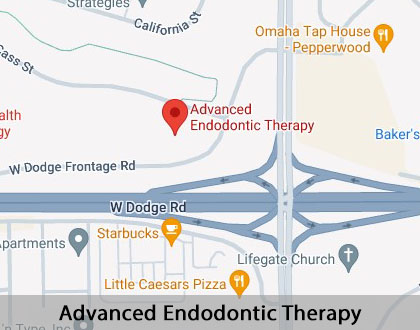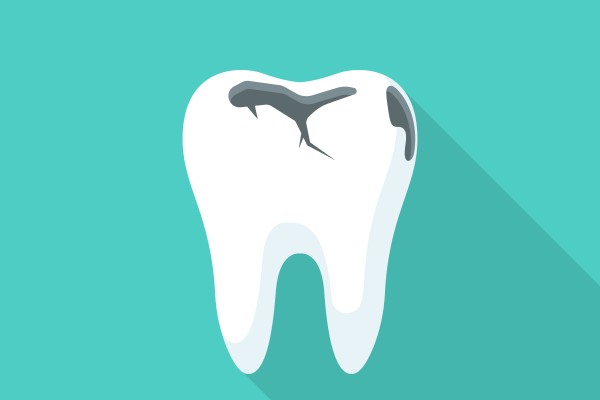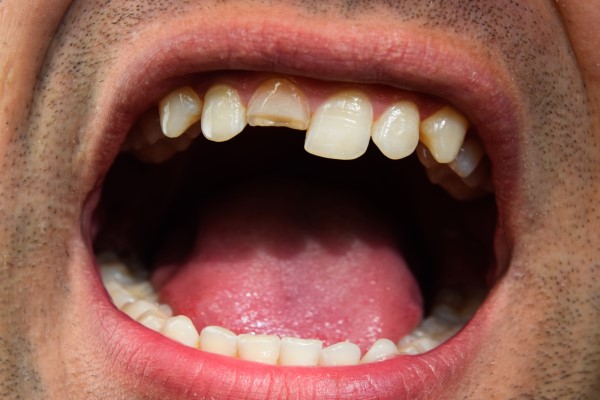Tooth Infection Treatment Omaha, NE
A tooth infection happens when pus and bacteria have accumulated inside the tooth or gum. When bacteria build up in the mouth, a tooth infection or abscess often follows. It can be the result of a dental procedure, trauma, or tooth decay.
An endodontist will be able to treat your tooth infection. The sooner you seek out treatment, the better your outcome. Tooth infection treatment is available at Advanced Endodontic Therapy in Omaha and the surrounding area. Call us at (402) 506-7111 to schedule an appointment.
Types of Tooth Infections
There are three types of tooth infections. They are:
- Gingival: This type of infection is located only in the gum tissue and is often caused by something stuck in the gums.
- Periodontal: This infection starts in bone and tissues that support the tooth. It is usually the result of gum disease and is more common among adults.
- Periapical: The most common type of tooth infection occurs when bacteria infect the pulp inside the tooth through a fracture or cavity. This bacteria can then spread to the end of the tooth’s root.
Unfortunately, tooth infections typically do not improve automatically, so it is critical to call an endodontist when experiencing symptoms. Leaving a tooth infection untreated can lead to serious, even life-threatening complications.
“Unfortunately, tooth infections typically do not improve automatically, so it is critical to call an endodontist when experiencing symptoms.”
Tooth Infection Symptoms
Anything that makes it easier for bacteria to get into the tooth or the surrounding tissue can cause tooth infection. Some of the most common causes include severe tooth decay, broken, chipped, or fractured teeth, gum disease, and tooth injury. Signs of a tooth infection may consist of:
- Bad taste in the mouth
- Difficulty breathing or swallowing
- Fever
- Gum swelling and redness
- Intense or throbbing pain
- Sensitivity to chewing or biting
- Sensitivity to hot or cold food and liquid
- Swelling in the face or cheek
“Anything that makes it easier for bacteria to get into the tooth or the surrounding tissue can cause a tooth infection.”
Impact of Untreated Tooth Infections
A tooth infection requires treatment by an endodontist to eliminate the bacteria and address the problem. Ignoring a tooth infection may lead to tooth loss which can harm overall health. The pain associated with a tooth infection can stop if it causes the pulp inside the tooth to die. However, the bacteria will continue to spread, destroying surrounding tissue.
An untreated abscess may lead to an infection in the jaw, other areas of the head, or the neck. Patients may even develop sepsis, which is a life-threatening infection. In addition, people with weakened immune systems are at higher risk of spreading infection when leaving a tooth infection untreated.
“Ignoring a tooth infection may lead to tooth loss which can harm overall health.”
Check out what others are saying about our dental services on Yelp: Tooth Infection Treatment in Omaha, NE
Treating a Tooth Infection
There are a few ways an endodontist can treat a tooth infection. The ultimate goal is to remove the infection and prevent complications. Treatment options include:
- Antibiotics: Antibiotics can be prescribed to help fight off any remaining bacteria but will not eliminate the cause of the infection.
- Incision and drainage of the abscess: The endodontist will make a small cut in the abscess to drain the infection.
- Root canal: This standard procedure involves removing the tooth’s infected inner pulp and filling the space with a material that helps prevent another infection. The patient may need a crown to protect the treated tooth.
- Root scaling and planing: Once the abscess is drained, the surfaces of the tooth root will be smoothed out below the gum line. This procedure helps with healing and preventing future infections.
- Tooth extraction: For an endodontist, this is the last resort. They will first try everything they can to save the tooth.
“The ultimate goal is to remove the infection and prevent complications.”
Questions Answered on This Page
Q. What are the three types of tooth infections?
Q. What can cause a tooth infection? What are the symptoms of a tooth infection?
Q. What can happen if a tooth infection is left untreated?
Q. How is a tooth infection treated?
Q. How can I prevent a tooth infection?
People Also Ask
Q. What are the symptoms of a tooth infection?
Q. How is a cracked tooth diagnosed?
Q. What types of tooth damage does an endodontist treat?
Q. How do endodontists treat pulp disease?
Aftercare and Prevention
Aftercare is an important part of the treatment process. After treatment, the endodontist will often recommend the patient rinse their mouth with warm salt water. Any post-procedure discomfort can usually be addressed with an over-the-counter pain reliever. Patients will be expected to schedule a follow-up appointment to ensure their symptoms improve and the infection clears up.
Avoiding tooth decay is an essential part of preventing tooth infections. Brushing twice a day, flossing once a day, and eating a healthy diet free from excess sugar and snacks reduces one's risk of tooth decay. Regular dental checkups are also advised. These oral hygiene measures are a patient's best defenses against developing tooth infections.
“Avoiding tooth decay is an essential part of preventing tooth infections.”
Frequently Asked Questions
Q. What is an abscessed tooth?
A. A tooth abscess is a pocket of infection caused by bacteria. Also known as a dental abscess, it may form in any part of the tooth. A tooth abscess should be treated as soon as possible.
Q. What is the difference between an abscess and an infection?
A. A tooth infection left untreated can eventually spread to the jaw, which often leads to an abscess developing. It typically gets swollen and painful and may appear as a lump in the gums above your tooth. Both conditions need to be treated by an endodontist.
Q. Should I go to the emergency room for an abscessed tooth?
A. While considered a dental emergency, unless your breathing is restricted, you should seek treatment at an endodontist's office and not the emergency room. If left untreated, an abscess can lead to an infection that can spread throughout the body. The sooner it is treated, the better. So, see an endodontist as soon as possible.
Q. Who is most likely to get a tooth infection?
A. People who use tobacco products are twice as likely to get a tooth infection. Other risks include dry mouth and poor dental hygiene. A weakened immune system can also increase your risk for a tooth infection.
Q. How can I find an endodontist in an emergency?
A. If your regular dentist is available, we recommend calling them for a recommendation. If not, an internet search of endodontists in your area is your next best move. You can read reviews from patients and find out which endodontists are available closest to you.
Start Feeling Better – Visit Us Today
By visiting us as soon as possible, our team can help get you the professional treatment you need. Instead of waiting around and allowing the symptoms to get worse, we can provide you with treatment options.
Definitions
Do Not Leave a Tooth Infection Untreated
If you suspect you have a tooth infection, do not ignore the symptoms. The sooner you see an endodontist, the quicker you will be on the road to recovery. Call Advanced Endodontic Therapy at 402-506-7111 to schedule an appointment.
Helpful Related Links
- American Association of Endodontics. Root Canal Treatment. 2024
- Healthline. Symptoms of Tooth Infection. 2024
- Mayo Clinic. Tooth abscess. 2024
- Medline Plus. Sepsis. 2024
- Mouth Healthy. Endodontics. 2024
- National Institute of Dental and Craniofacial Research. Dry Mouth. 2024
- National Library of Medicine. Anatomy, Head and Neck, Oral Gingiva. 2024
- WebMd. What to Know About Periodontal Scaling and Root Planing. 2024
About our business and website security
- Advanced Endodontic Therapy was established in 2008.
- We accept the following payment methods: Cash, Discover, MasterCard, and Visa
- We serve patients from the following counties: Douglas County, Dodge County, Lancaster County, and Sarpy County
- We serve patients from the following cities: Omaha, Benson, Florence, Bellevue, Fort Calhoun, Papillion, Lincoln, Bennington, Plattsmouth, Fremont and Elkhorn, Missouri Valley, and Council Bluffs
- Norton Safe Web. View Details
- Trend Micro Site Safety Center. View Details
Back to top of Tooth Infection Treatment










